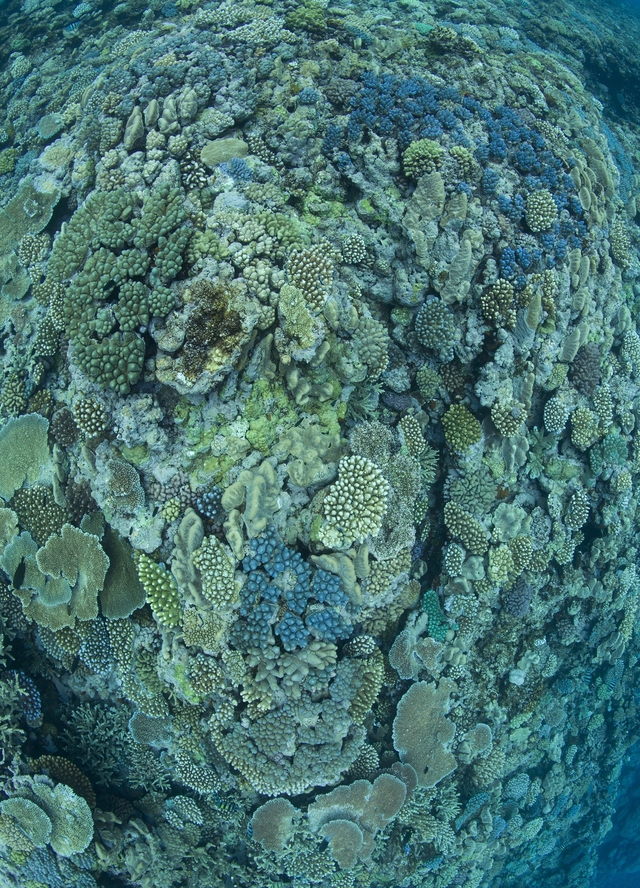 A healthy coral reef community at One Tree Island in Australia's Great Barrier ReefDAVID KLINE
A healthy coral reef community at One Tree Island in Australia's Great Barrier ReefDAVID KLINE
The growth of coral reefs will be severely reduced by the end of the 21st century if carbon emissions aren’t decreased, according to a study published Wednesday (March 14) in Nature. Researchers exposed a 400-square-meter coral community in the Great Barrier Reef to seawater with artificially elevated carbon dioxide levels for 30 days. The elevated CO2 increased the acidity of the seawater, changing it from a normal pH of 8.1 to one of about 6.1, similar to the level that is projected to occur by the end of this century if carbon emissions remain unchecked. They found that coral growth—measured as net community calcification—was reduced by 34% in the exposed reef compared to controls.
“Our findings provide strong evidence that ocean acidification caused by carbon ...













